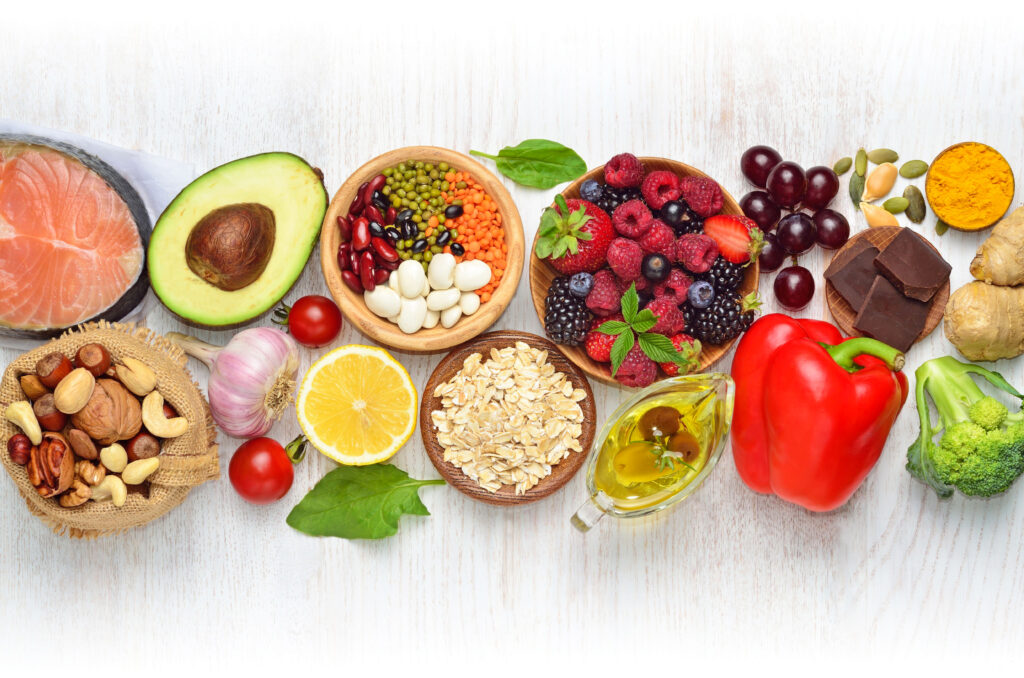Drug addiction affects about 27 million Americans, according to the Department of Health and Human Services. Each affected person reports similar symptoms, such as a decline in physical and mental health. Substance abuse renders the body incapacitated in several ways. Not only does it affect your work, relationship, or social life, but it also impairs organ functions and slows down metabolism. Although therapy, medications, and support groups are well-known solutions for treating substance use disorder, an underestimated and overlooked ally that helps in recovery is nutrition.
Nutrition is a massive part of recovery, as it usually helps the body and mind function. A well-balanced diet is a fundamental part of addiction recovery. Therefore, incorporating it into treatment is vital to the body’s healing and restoration. This blog explores the benefits of nutrition for recovery and the recommended diet.
Impact of Substance Abuse on Nutrition
Under the clutches of substance addiction, you forget everything and put your abuse above everything, including your diet. Instead of striving to maintain a healthy lifestyle, your attention drifts to buying and using drugs and alcohol.
Substance addiction affects nutrition in many ways, often destructive. The following are some of the impacts:
- Eating poorly: The powerful effect of drugs and alcohol can make one forget to eat or eat little. Drugs and alcohol increase cravings and tolerance, so the more indulgence, the less they eat properly. As a result, they have little appetite for food and may engage in cheaper ways to fuel their bodies, such as eating junk foods.
- Binge-eating: When intoxicated or the effects of the drugs wane, some people develop an increased appetite for food. As a result, they binge until they feel satisfied. They tend to eat any food they can lay their hands on, primarily unhealthy meals.
Effects of Addiction and Poor Nutrition on Physical and Mental Well-being
Substance misuse and poor diet can cause heavy damage to the body and mind. The damage often depends on the type of substance, the quantity, and the duration of use. Here are the effects of addiction and poor diet on well-being:
- Digestive system damage: Alcohol impairs the organs responsible for digestion. Research proves alcohol is connected to vitamin deficiencies, cirrhosis, and hormonal imbalances.
- Chronic constipation: People who are opioid addicts often report chronic constipation and resort to laxatives to ease the symptoms. In doing so, they worsen the issue, resulting in heartburn and nausea.
- Dehydration and lack of appetite: Stimulants are known for suppressing cravings, so regular intake can cause dehydration and malnutrition. Long-term side effects may include arm wounds, depression, poor immune system, rapid weight loss, imbalanced electrolytes, and irregular heart patterns.
The good news is that many of these damages can be reversed with an adequate diet during recovery.
Benefits of Nutrition for Recovery
The body struggles to fuel itself with a lack of proper diet, especially during addiction recovery. As a result, every organ shuts down. Alcohol or drug detox is a crucial step in recovery that rids the body of foreign substances to foster healing. A balanced diet is essential to support the process. It can reverse the damage and give the body the needed fuel to function at the optimum level. With proper implementation, below are some of the benefits the user in recovery enjoys;
- Enhanced sleep
- More energy
- Balanced mood and no fluctuations
- A more robust immunity
- Improved digestion
- Improved self-esteem
- Low depression and anxiety
- Low risk of relapse
Overall, eating a balanced diet during recovery improves the person’s mental and physical state.
Foods to Eat During Alcohol Detox
Your nutritional therapist will typically recommend a proper diet for you during treatment. They work with you to develop a meal plan that can improve your symptoms and give you that additional boost you need to get through recovery. Some suggestions they can make in this regard include;
- Regulating the amount of sugar to ingest
- Minimizing your caffeine intake
- Increasing the amount of complex carbohydrates in your meal provides a consistent energy source and maintains blood sugar levels.
- Staying hydrated regularly to flush out toxins
- Increasing fiber and lean protein intake to repair the body’s tissues.
- Eating fruits and vegetables
Essentially, the diet for alcohol recovery and drug abuse treatment must contain a balanced diet of healthy fats, lean protein, complex carbohydrates, vitamins, minerals, and water.
DetoxLA Can Help You Create an Effective Meal Plan to Enhance Recovery
The benefits of nutrition for recovery should be considered. A balanced diet will fuel the body and mind to function, heal, and thrive. Nourishing the body with the right food combination can foster recovery. However, you must seek the proper guidance from medical professionals. This is where DetoxLA comes in. Our experienced nutritional therapist can help you create a tailored meal plan. as you continue your recovery. Reach out to us on the numbers: 818.671.4765 to learn more about our programs.

